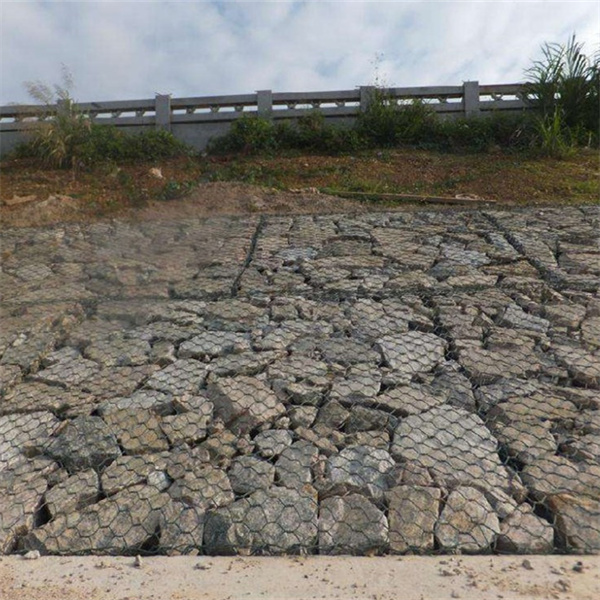Dis . 05, 2024 15:47 Back to list
gabion wall engineering manufacturer
Gabion Wall Engineering An Effective Solution for Modern Construction
Gabion walls have emerged as a popular choice in the field of modern engineering and construction, serving a multitude of purposes, from erosion control to decorative landscaping. These structures, made from steel mesh filled with stones or other materials, offer a unique combination of strength, durability, and aesthetic appeal. In this article, we will delve into the engineering behind gabion walls, their applications, advantages, and considerations for manufacturers.
What are Gabion Walls?
Gabion walls consist of wire mesh cages filled with rocks, concrete, or other materials, which are used to create an effective retaining wall or to protect against soil erosion. The term gabion comes from the Italian word gabbione, meaning large cage. Although gabion walls can trace their origins back to ancient civilizations, their application in contemporary engineering has reached new heights thanks to modern materials and methods.
Applications of Gabion Walls
Gabion walls are employed in a variety of civil engineering and landscaping projects. Some common applications include
1. Erosion Control Gabion walls provide effective barriers against soil erosion, particularly in riverbanks and slopes. They absorb the energy of flowing water, thereby protecting vulnerable areas from being washed away.
2. Retaining Walls They are used to hold back soil in steep areas, allowing for safer land use and preventing landslides.
3. Noise Barriers Gabion walls can act as sound barriers in high-traffic areas, reducing noise pollution in residential zones.
4. Decorative Features Many architects and landscapers utilize gabion walls for aesthetic purposes, as the stone-filled cages offer natural beauty that blends with the surroundings.
Advantages of Gabion Walls
gabion wall engineering manufacturer

The popularity of gabion walls can be attributed to several significant advantages
- Cost-Effective Gabion walls typically require less material compared to traditional concrete walls, making them a more economical choice.
- Sustainable Utilizing local stones for filling reduces transportation costs and minimizes environmental impact. Furthermore, gabion walls can blend seamlessly with their surroundings, promoting ecological harmony.
- Durability Constructed from coated steel mesh, gabion walls are resistant to rust and corrosion. In combination with the strength of the stones, they possess a long lifespan with minimal maintenance.
- Flexibility The modular nature of gabion walls allows for easier installation in various terrains without extensive groundwork.
- Drainage Properties The openness of the mesh cages allows for water drainage, reducing hydrostatic pressure behind the wall and contributing to its longevity.
Considerations for Manufacturers
While gabion walls offer numerous benefits, manufacturers must consider various factors when producing these structures. Quality control is paramount; substandard materials can lead to failures in performance and longevity. Manufacturers should also be mindful of the sizing and design of the mesh cages, ensuring that they can withstand environmental stresses, including wind and water pressure.
Furthermore, manufacturers must stay updated with regulations and best practices in the engineering and construction industry. Collaborating with architects and civil engineers can provide valuable insights into designing custom gabion solutions tailored to specific project needs.
Conclusion
Gabion walls represent a versatile and effective engineering solution for various applications in construction and landscaping. Their unique combination of strength, sustainability, and aesthetic appeal makes them an excellent choice for managing erosion, creating retaining structures, and enhancing landscapes. As demand continues to grow, manufacturers who prioritize quality and innovation in gabion wall engineering will help shape the future of modern infrastructure. Through thoughtful design and skilled manufacturing processes, gabion walls will continue to play a crucial role in sustainable development.
-
Visualizing Gabion 3D Integration in Urban Landscapes with Rendering
NewsJul.23,2025
-
The Design and Sustainability of Gabion Wire Mesh Panels
NewsJul.23,2025
-
The Acoustic Performance of Gabion Sound Barriers in Urban Environments
NewsJul.23,2025
-
Mastering the Installation of Galvanized Gabion Structures
NewsJul.23,2025
-
Gabion Boxes: Pioneering Sustainable Infrastructure Across the Globe
NewsJul.23,2025
-
Custom PVC Coated Gabion Boxes for Aesthetic Excellence
NewsJul.23,2025
-
Installation Tips for Gabion Wire Baskets in Erosion Control Projects
NewsJul.21,2025






